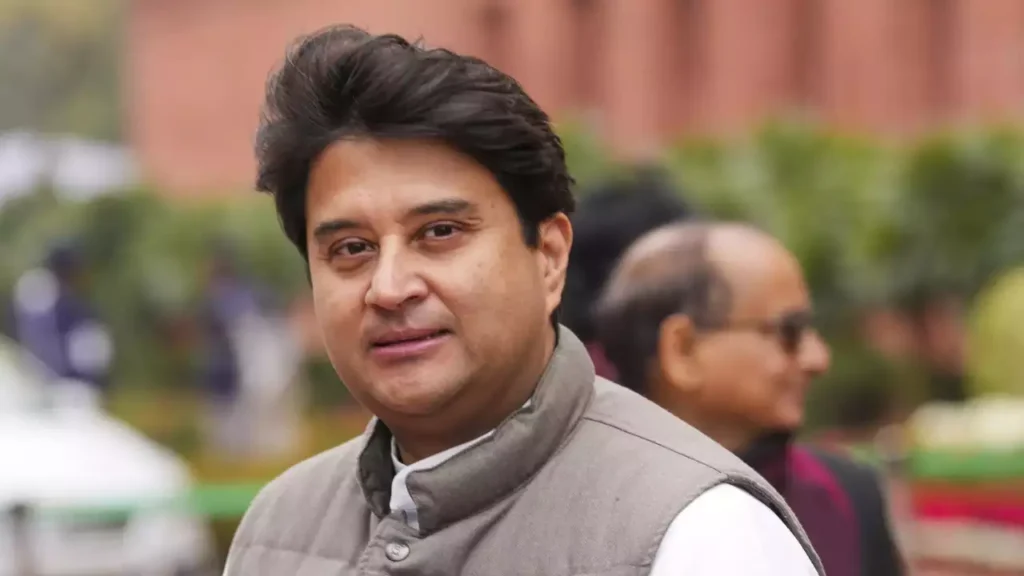Union Minister Jyotiraditya Scindia recently criticized the Congress party for what he described as decades of neglect towards the indigenous communities of Tripura. Speaking at a rally in Agartala, Scindia accused the Congress of sidelining tribal voices and ignoring their aspirations, leaving the state’s tribal population to fend for themselves without proper representation or development initiatives.
Scindia praised the Modi-led government for its consistent focus on empowering indigenous communities, citing the appointment of leaders from tribal backgrounds to prominent positions. He highlighted that Prime Minister Narendra Modi’s administration has prioritized inclusivity, ensuring that voices from every section of society are heard. Scindia noted the appointment of Droupadi Murmu, a leader from a tribal community, as the President of India, calling it a milestone in the country’s political history.
He further elaborated on the various welfare schemes introduced by the central government, which have brought tangible benefits to the tribal population in Tripura and beyond. Scindia stressed that the Modi government has worked tirelessly to improve access to education, healthcare, and infrastructure in tribal areas. He pointed out that these efforts are evident in Tripura, where connectivity projects and social welfare programs have significantly improved living standards in tribal-dominated regions.
The minister also accused the Congress of paying lip service to tribal issues while failing to deliver meaningful results. He claimed that Congress governments in the past ignored the socio-economic challenges faced by indigenous communities, creating a vacuum that the BJP is now addressing. According to Scindia, the Congress’s lack of action has led to long-standing grievances among tribal populations, making them feel alienated and overlooked.
Scindia’s speech was met with enthusiastic responses from the audience, many of whom resonated with his message of empowerment and recognition. Tribal leaders present at the rally echoed his sentiments, thanking the BJP for initiatives aimed at preserving and promoting tribal culture while addressing their developmental needs. Several leaders acknowledged the Modi government’s efforts in bringing tribal issues to the forefront of national politics.
In his address, Scindia also underlined the BJP’s commitment to fostering a sense of pride and belonging among indigenous communities. He spoke about cultural preservation initiatives and efforts to ensure that tribal languages, art forms, and traditions receive due recognition and support. He expressed confidence that these measures would not only uplift tribal communities economically but also strengthen their cultural identity.
Scindia concluded his address by urging the people of Tripura to continue supporting the BJP, emphasizing that only a government committed to inclusive development can truly address the needs of all sections of society. He assured the crowd that the BJP would remain steadfast in its mission to build a better future for Tripura’s indigenous population, ensuring their voices are heard and their contributions are acknowledged.
The Congress, on the other hand, has dismissed Scindia’s remarks, calling them politically motivated and lacking substance. Party spokespersons argued that the BJP’s claims of inclusivity are contradicted by ground realities, where many tribal regions still face challenges in accessing basic services. Congress leaders also pointed to their own efforts in implementing welfare schemes for tribal populations during their tenure, accusing the BJP of rewriting history to serve its narrative.
As political campaigns in Tripura intensify ahead of upcoming elections, the focus on indigenous communities and their role in the state’s development is expected to remain a key talking point. Both the BJP and Congress are vying for the trust of tribal voters, who constitute a significant portion of the electorate and play a decisive role in the state’s political landscape.

